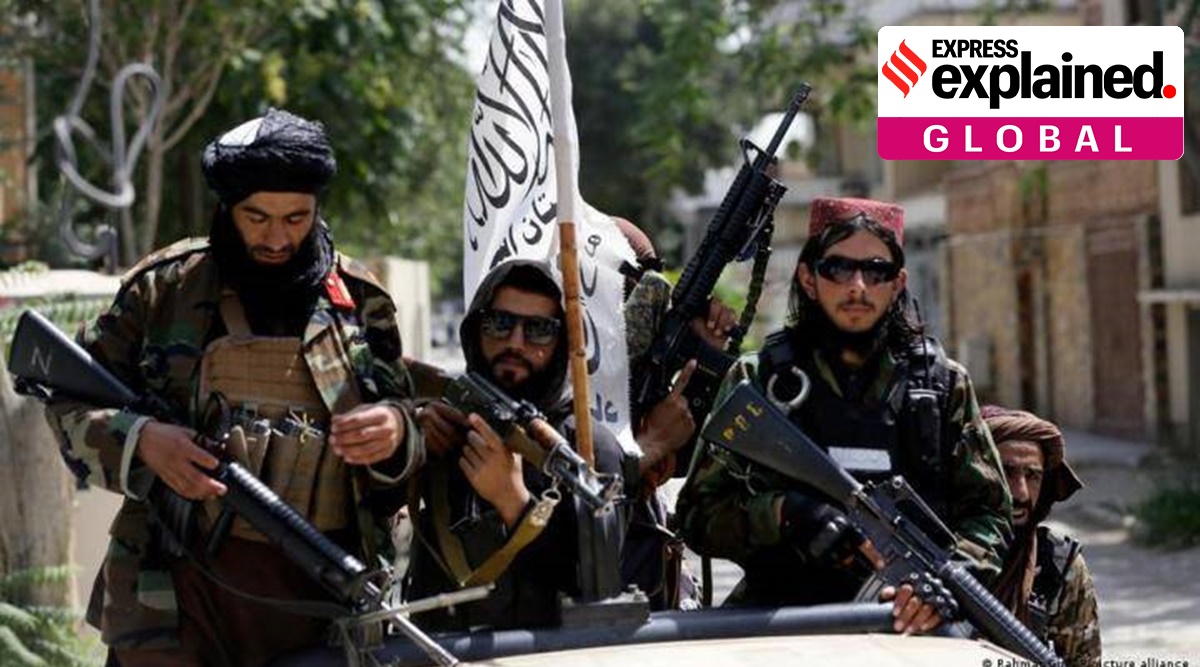Explains: Why is India hosting a NSA meeting on Afghanistan with regional actors?
[ad_1]
India is hosting the Delhi Regional Security Dialogue on Afghanistan from November 10th to 11th. The meeting takes place at the National Security Advisor (NSA) level and is chaired by NSA Ajit Doval.
What is the meeting about and why is India hosting it?
As security concerns over Afghanistan are high, New Delhi has taken the initiative to organize a conference of regional stakeholders and key powers on the country’s current situation and future prospects.
India’s highest security institution, the Secretariat of the National Security Council, took the lead in organizing the face-to-face meeting. Invitations were sent to Afghanistan’s neighbors such as Pakistan, Iran, Tajikistan and Uzbekistan, as well as other key actors such as Russia and China.
So is India going to receive Pakistan at an Afghanistan conference?
No, that doesn’t happen.
Pakistan’s National Security Advisor Moeed Yusuf announced last week that he would not be attending the meeting, apparently to protest against the supposedly negative role of India in Afghanistan.
At a press conference in Islamabad after a meeting with the Uzbek NSA, when asked whether Pakistan would take part in the conference organized by India, Yusuf said: “I will not go, a spoiler cannot be a peacemaker.”
“I think the obstacles of the region are in front of you, there is no need for them. On the one hand there is India … unfortunately (because of) the behavior and ideology of the government there I don’t see how this (peace) process will progress – not only for Pakistan, but for the region.
“The world has unfortunately closed its eyes and is not talking to India as it should,” said Yusuf.
Yusuf said if peace is made in Afghanistan it could become a major trade hub as a connecting corridor in the heart of Asia. If Yusuf had agreed, it would be the first high-level visit from Pakistan to India since 2016.
How does India view Pakistan’s refusal to attend the conference?
A government source said the Pakistani position reflected its view of Afghanistan, where it had played a “pernicious” role.
“Pakistan’s decision is unfortunate but not surprising. It reflects his attitude towards seeing Afghanistan as his protectorate. Pakistan did not attend previous meetings of this format. His media comments against India are an unsuccessful attempt to divert attention from its pernicious role in Afghanistan, “the source said.
And how does India see the reaction of the other invited countries?
The response to India’s invitation was “overwhelming,” it said from sources. “Central Asian countries as well as Russia and Iran have agreed to participate.”
According to the sources, this will be the first time that all Central Asian countries, and not just Afghanistan’s immediate neighbors, will participate in this format.
“The enthusiastic response shows the importance of India’s role in regional efforts to promote peace and security in Afghanistan,” a source said.
While Yusuf announced his decision to stay away to reporters, both Pakistan and China are expected to have “formal responses” to India’s invitation.
What does India think ahead of the conference?
This could be India’s attempt to secure a seat at the table to decide how to proceed in Afghanistan.
“If you’re not at the table, you’re on the menu … this conference is India’s attempt to set the table, get on the table and set the agenda,” a source told The Indian Express, underscoring the need to stand up active with the world to protect India’s security interests.
Until the fall of Kabul, India had not come to an understanding with the Taliban through publicly announced official channels.
New Delhi has made it clear that the measures of the new Taliban dispensation in Afghanistan are red lines – that there should be no safe havens for terrorism on its soil, the administration should be inclusive and the rights of minorities, women and children must be protected will.
But so far the signs of the Taliban – whose government is heavily influenced by the Pakistani ISI – have not been encouraging. New Delhi shared this assessment with its interlocutors last month since the Taliban formed their cabinet.
The response from the Pakistani NSA, calling India a “spoiler”, shows that Rawalpindi is not interested in engaging in any process initiated by India.
What happened in the previous meetings in this format?
Two previous meetings in this format took place in Iran in September 2018 and December 2019. The third meeting in India could not take place earlier due to the Covid-19 pandemic.
The high-level attendance at the India-hosted meeting, the source said, “reflects the widespread and growing concern of regional countries about the situation in Afghanistan and their desire to consult and coordinate with one another”.
“India plays an important role in this process,” the source said.
Newsletter | Click here for the best explainer of the day in your inbox
[ad_2]

